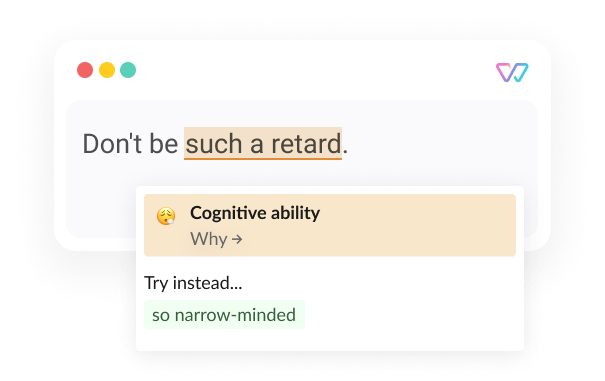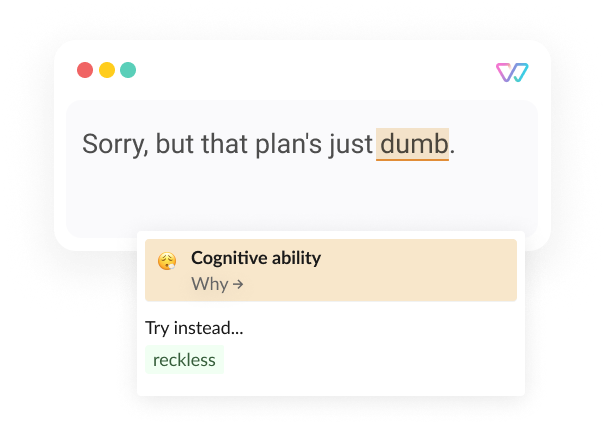 Cognitive ability
Cognitive ability
Fuels preconceived notions about cognitive ability
Steer clear of pandering to misconceptions and biases about the capacity to think and reason.
Basic Example

Advanced Example

Our society has countless negative terms for describing cognitive function. And we use them every day in jest and in anger, to express displeasure or frustration, in conversations with and about others. But this language makes figurative use of harmful real-life biases that misrepresent, pigeonhole, and marginalize people with a disability or chronic disease that influences their cognitive ability. You may not be aware who on your team goes about their life and job with managing barriers to their cognitive ability. How cognitive ability manifests is different, from person to person, and invisible to most.
